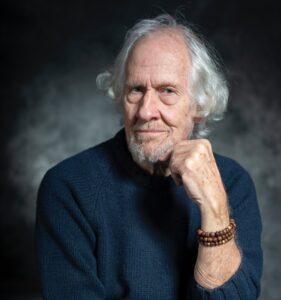Ján
At first impression, it might seem that Mr. Ján, originally from Bratislava, is a somewhat atypical patient. He viewed his diagnosis not only in the context of the available medical information, but also through the eyes of an expert who is able to put the unique physical properties of proton therapy into context compared to other radiotherapy options. He did not hesitate to rely on scientific knowledge even in negotiations with the health insurance company that decided to authorise treatment abroad.
Like many men of a more mature age, Mr. Ján dealt with prostate problems that culminated in surgery. Subsequent histological analysis confirmed the presence of cancerous cells, but the relevant indicators were not critical, and active health monitoring was recommended as the next course of action. After three months of monitoring of a key PSA marker, which continuously increased, the treating physician proceeded with treatment. In Bratislava, the patient underwent an MRI scan and the first stage in the treatment was to be a facility specialising in brachytherapy – a type of radiation therapy. “In the end, however, I did not receive a recommendation for this type of treatment. As the prostate was damaged during the operation, this type of radiotherapy would not have been effective enough for me. So I found myself at crossroads and in the end the doctors and I agreed to go down the radiotherapy route,” explains Jan.
Professionally, he was more than close to the principles of radiotherapy, so he began to seek information from all available sources. As a physics teacher, he was able to objectively evaluate the physical properties of proton beams and their effectiveness compared to photon radiation. After studying the available methods, the decision in favour of proton therapy was quite clear and Mr. Ján had an initial consultation at the Proton Centre.
Unfortunately, like many other patients, he had to deal with the ambivalence of the medical community when applying for approval for proton radiotherapy. “Proton therapy is a relatively new treatment modality, and when serious physicians research and compare different methods, they need a number of cured cases for statistical evaluations. Some are proponents of this treatment and some are fierce opponents. And I have actually become one of the patients who have almost paid the price for the inconsistency of the medical community. Fortunately, my attending physician was unequivocally in favor of me undergoing proton therapy. I didn’t want to undergo any more surgery, and the precision of the proton beam with minimal impact on the surrounding tissues made perfect sense in my case.”
As a citizen of Slovakia, he had to submit an application for treatment abroad to his health insurance company, which triggered a negotiation anabasis. First there were formal deficiencies in the application, then it turned out that the recommendation from the oncologist was not enough, and Mr. Ján had to ask for an opinion from another specialist department. After three weeks, he received a recommendation for proton therapy there as well, among other reasons, that due to the technological downtime of some of the equipment at the facility, the treatment could not be started immediately. However, the health insurance company still asked Mr Ján to find another radio-oncology facility that could accept him without delay.
“At this stage, the Proton Centre has supported me tremendously. Due to the constant reservations of the Slovak insurance company, they rescheduled the individual radiation fractions so that the costs associated with the treatment could be minimized. I refused to look for another facility and gave clear physical arguments in favour of proton therapy as reasons. I even looked for foreign comparative studies. Nevertheless, after six months, my application was finally rejected.”
The happy ending was eventually helped by an appeal to the Health Care Supervisory Authority, which accepted the patient’s arguments after about a month, and within a week Mr. Ján was able to start his initial procedures at the Proton Centre. “From that moment on, everything was different. My PSA marker was constantly rising during the approval procedures, so I appreciated that the Proton Centre reacted quickly. The time factor is of immeasurable importance in cancer… However, the moment you sign up for treatment at the Proton Center, the care is immediate. The staff know about you immediately, can accommodate special requests (e.g. when I need to coordinate my schedule with train schedules), and I knew immediately who to contact at the center. There are really nice people working there and it was also very helpful that the timings of the different radiation fractions were respected.”
The end of Mr Jan’s story has a promising outlook – three months after the end of the treatment, the PSA marker values have dropped significantly, and today they are even well below the threshold value, which is considered critical due to the possibility of the presence of a malignant tumour. He is so appreciative of the ambulant and painless proton treatment – he stayed in a hotel within walking distance of the Proton Centre for two weeks and says he takes his hat off to the way everything works at the Proton Centre.
